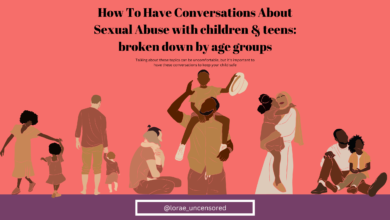
The 5 Love Languages, proposed by Gary Chapman in 1992, have been a pillar in how we talk about relationships and intimacy. They have guided so many conversations about how we give love and receive love, but it is time to reevaluate that foundation.
Research does not support the idea that we are limited to 5 distinct love languages. In fact, some of the love languages he proposed are essential components to every healthy relationship. Most significantly, Chapman’s 5 love languages were not designed with marginalized groups in mind and his theory should be disassembled in order to rebuild a decolonized model that acknowledges the traditional ways that people of colour, and the queer, neurodivergent, and disabled communities love on each other.
Chapman’s 5 love languages includes: gifts, touch, acts of service, quality time and words of affirmation. Reader, if you identify deeply with any of these that is perfectly valid as they are still relevant and vital parts of intimacy. We’re simply making room for a more diverse representation of what love looks like. This gives people who do not identify with Chapman’s 5, the freedom to show love in a different way and the reassurance of knowing that their method of giving and receiving love is – valid.

Of course we know intuitively that there are more than 5 love languages, because many of us grew up with grandparents whose primary love language was food. They loved cooking a warm meal, with recipes passed down through generations. Some other examples of inclusive love languages that have come up in conversation with members of the community are:
-music
-dance
-poetry/writing (ex: leaving little loving notes)
-infodumping (a common neurodivergent love language- sharing information on special interests)
-parallel play (engaging in separate activities while being comforted by each other’s company)
-playfulness
-BDSM
Furthermore, the anticipation of needs could also be seen as its own love language that spans across multiple of the others.
Besides being cultural, love languages can be deeply personal to each person and putting in the work to understand yours, and those of the people you love is important because it will increase meaningful connection and intimacy in your relationships.
So I’d like to invite you to reconsider your love languages from a broader perspective, and comment to let us know which ones we may not have listed.
To hear more from Kevina visit her platforms.






